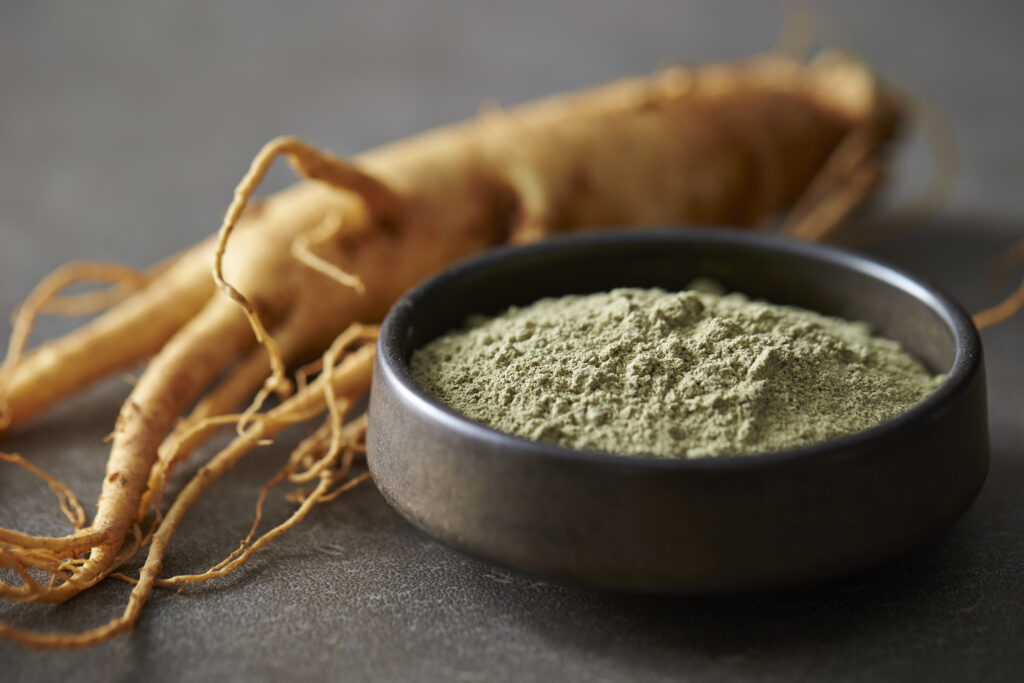🧠 Ginseng: How This Powerful Root Supports Health and Menopause

Summary: All About Ginseng, Its Benefits, Sources, and Role
-
Introduction to Ginseng
-
Health Benefits and Uses
-
Benefits during Menopause
-
Dosage and Safety
-
Contraindications
-
Relevant Research and Resources
1. Introduction to Ginseng 🌿
Ginseng is a medicinal plant known for its adaptogenic properties, which help the body manage stress and restore balance. The two most common types are Asian ginseng (Panax ginseng) and American ginseng (Panax quinquefolius). Traditionally used in Chinese medicine, this root is now globally recognized for its potential to enhance energy, focus, and resilience.
2. Health Benefits and Uses 🌟
-
Energy and vitality: Ginseng helps reduce fatigue and improve stamina, making it a popular supplement for people experiencing burnout or chronic tiredness. ⚡
-
Cognitive function: It may boost memory, focus, and mental performance by supporting neurotransmitter activity. 🧠
-
Immune system support: Ginseng strengthens immune defenses, helping the body fight off infections more efficiently.
-
Stress reduction: As an adaptogen, ginseng helps regulate the stress response and reduce cortisol levels. 😌
3. Benefits of Ginseng for Menopause 🌸
-
Mood regulation: Ginseng may improve mood stability and ease symptoms like irritability, anxiety, and mild depression often linked to hormonal changes.
-
Energy support: Many menopausal women experience fatigue—ginseng offers a natural way to restore energy without stimulants like caffeine.
-
Cognitive clarity: It supports better memory and concentration, which can be affected during perimenopause and menopause.
-
Hormonal balance: Some studies suggest that ginseng may help reduce hot flashes and other menopausal symptoms by supporting endocrine function.
4. Dosage and Safety ⚖️
-
Typical dosage: 200–400 mg per day of standardized extract is common, often taken in the morning.
-
Safe use: Ginseng is generally considered safe when used in moderate amounts for a few weeks at a time. Long-term use should be monitored by a healthcare professional.
-
Forms: Available as capsules, powders, teas, and tinctures.
5. Contraindications 🚫
-
Not recommended for: People with high blood pressure, diabetes (without monitoring), or hormone-sensitive conditions should consult a doctor.
-
Drug interactions: Ginseng may interfere with blood thinners, diabetes medications, and antidepressants.
-
Side effects: Can include insomnia, headaches, digestive upset, or increased heart rate in sensitive individuals.
-
Avoid at night due to its energizing effects.
6. Relevant Research and Links 🔍
Numerous studies support ginseng’s adaptogenic and energy-boosting effects:
Conclusions
Ginseng is a powerful natural ally for women navigating menopause. By supporting mood, mental clarity, and energy, it offers a holistic approach to balance and well-being. As always, consult your healthcare provider before starting any new supplement. 🌿✨